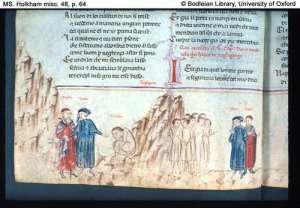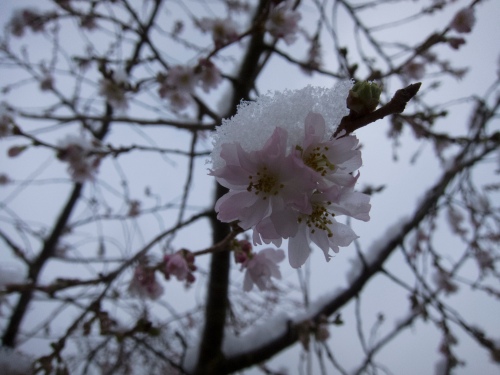As he begins his ascent of the Holy Mountain, Dante runs into, indeed nearly trips over, an old friend called Belaqua, a Florentine lute-maker and musician. Dante is delighted to see him there as one of the redeemed, since in Florence he seemed, as many musicians seem to their friends now, to spend alot of his time just ‘hanging out’ with other musicians and not getting on with anything in particular. Then Dante is disturbed to notice that that is exactly what Belaqua still seems to be doing on the Holy Mountain, just lounging around, until Belaqua explains that this is actually his penance! He is obliged to hang around waiting for the exact amount of time he wasted on earth, before he can begin his true his ascent. What was previously just ‘time wasting’ is now being converted by grace into ‘otium sacrum’ that holy leisure, that pause and patience, that long wait in which at last we let God be God. It’s no wonder that Samuel Becket, who was to invest so much imagination into what it means to wait, was very drawn to this passage and that the hero of his semi-autobiographical short stories is called Belaqua. I wrote this poem over thirty years ago, influenced as much by Becket as by Dante, towards the end of an apparently fruitless period of lostness and indolence. Placing it now in this new sequence is itself a parable of what I understand redemption to be.
As usual you can hear the poem by clicking on the ‘play’ button or the title, and I am grateful to Margot Krebs Neale for the lovely interpretative image which follows the poem
Love In Idleness
When I am bogged in indolence again
It’s purgatory for me, as for Belaqua,
Hanging around instead of getting on
With his salvation. I can’t lift a finger.
The snow is falling heavily outside.
The earth gets lighter as the sky gets darker.
I shiver where I’m sitting (window wide
for snow-flakes to drop in and fade away)
And hide myself in something else’s hide.
Coat panther-black and shabby hat wolf-grey,
As my numb fingers wrap about my pen,
all I need is fire and something to say.
Belaqua’s lute speaks with the tongues of men,
The tongue-tied mind is loosened into praise
I slip the disc back in its sleeve again.
One side is columns stiff with turgid prose
About the quattrocento. On the other
A sound-box holds the craftsman’s fretted rose
With Florence in the background. What a cover
For the God who spoke through someone else’s fingers
When ours were still entwined with one another.
ages ago we heard the music linger
before this light had lost its radiance
And cast on love the shadow of our Hunger;
We spoke of free-will and of innocence
And trod the pavements of the fourth cornice
Where Love is to be purged of indolence.
I write these verses pending my release




